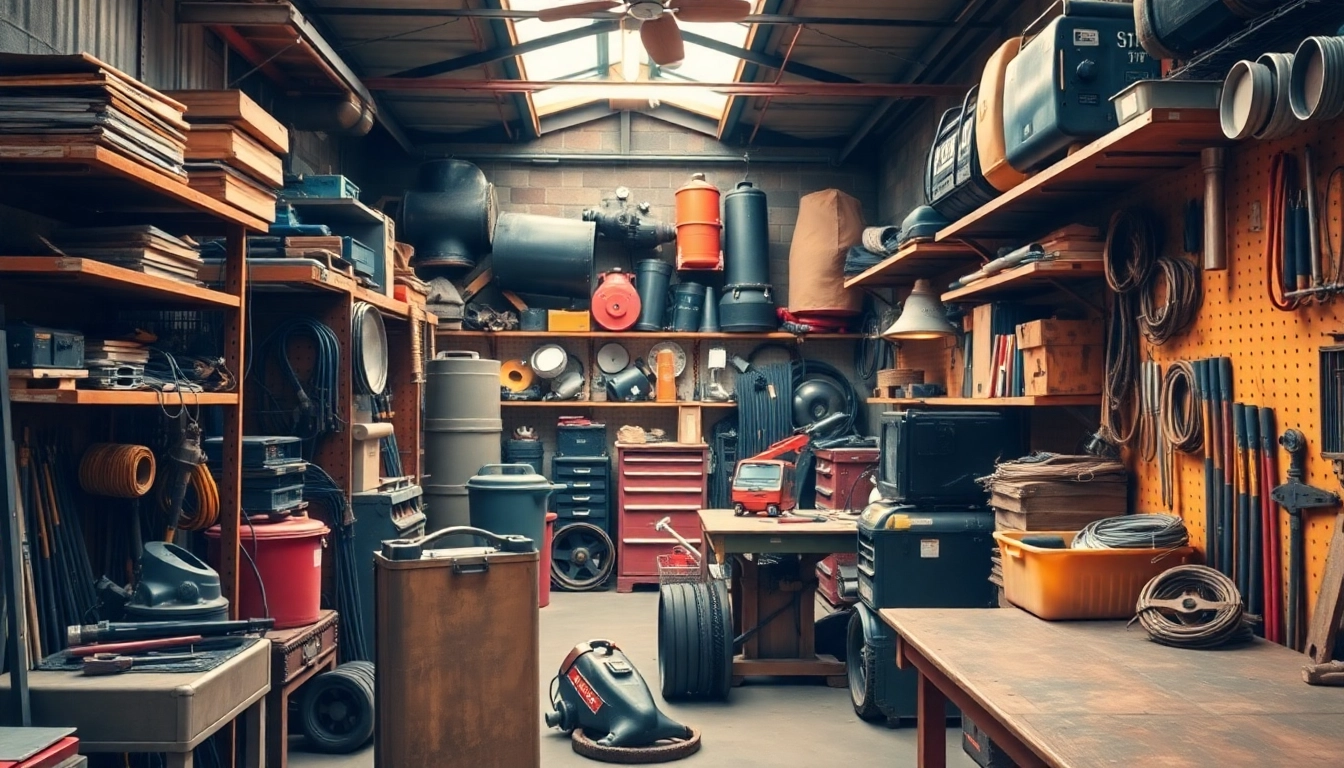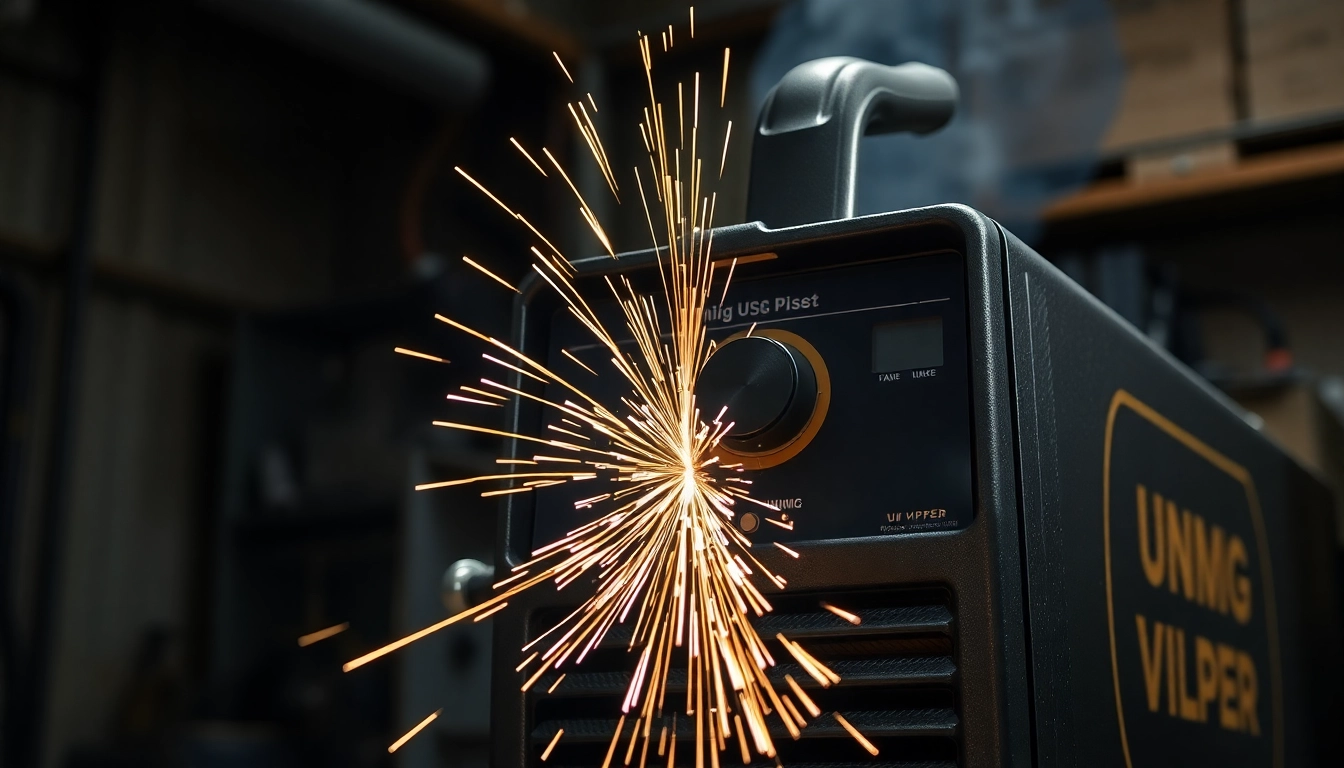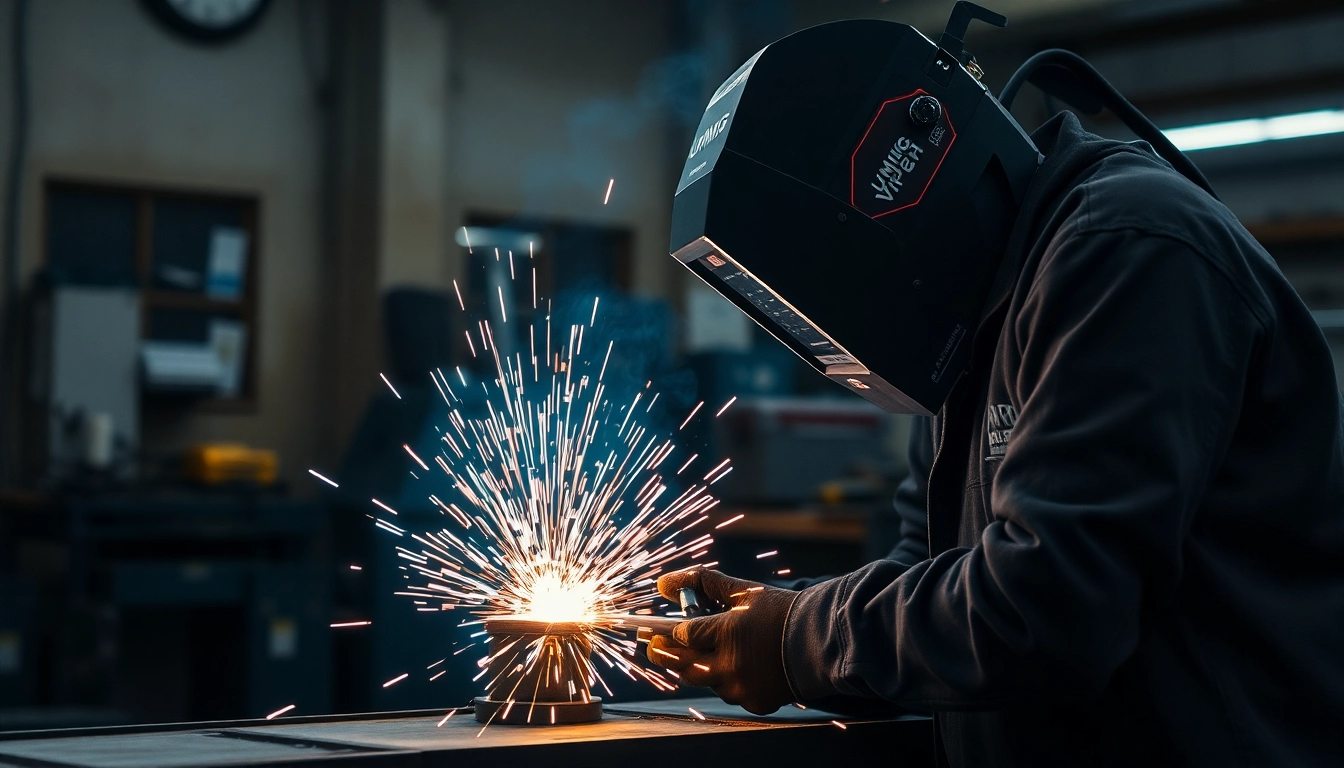Understanding Welding Supplies
What Are Welding Supplies?
Welding supplies encompass a broad range of materials, tools, and equipment necessary for various welding processes. Whether you are a hobbyist looking to tackle minor repairs at home or a seasoned professional working on large industrial projects, understanding what welding supplies include is pivotal. Key items often categorized under welding supplies comprise welding machines, filler metals, electrodes, protective gear, welding carts, gas regulators, plasma cutters, and accessories like welding helmets and gloves. Each of these components plays a crucial role in ensuring effective, safe, and efficient welding operations. If you’re searching for welding supplies near me, it’s essential to know what you’re looking for to suit your specific needs.
Types of Welding Supplies Available
The welding supply landscape features various types of products tailored for specific welding processes. The most common types include:
- Welding Machines: These machines generate the necessary heat and energy to connect materials. Types include MIG welders, TIG welders, stick welders, and multi-process welders.
- Filler Metals and Electrodes: Essential for joining metals, filler metals come in various forms, including rods, wires, and electrodes, each designed for specific welding techniques.
- Protective Gear: Safety is paramount in welding. Key protective equipment includes welding helmets, gloves, jackets, and respiratory aids.
- Welding Accessories: Items such as clamps, grinding disks, wire brushes, and welding blankets are crucial for enhancing your welding setup.
- Gas Supplies: In processes like MIG and TIG welding, gases such as argon or CO2 are essential. These supplies include gas cylinders, regulators, and hoses.
Why Local Matters: Benefits of Buying Welding Supplies Near Me
Purchasing welding supplies locally presents numerous benefits. Firstly, immediacy is a significant factor; local suppliers can provide essential items quickly without the delays associated with shipping. Additionally, local shops often feature knowledgeable staff who can offer expert advice tailored to specific projects. This face-to-face interaction allows you to ask questions, seek guidance on equipment usage, and clarify which products are best suited for your needs. Moreover, supporting local businesses helps strengthen the community and economy while often fostering lasting relationships that can be advantageous for future projects.
Where to Find Welding Supplies Near Me
Local Hardware Stores: A Convenient Option
One of the most straightforward places to find welding supplies is at local hardware stores. Chains like Home Depot, Lowe’s, and Ace Hardware typically carry a range of welding products. These stores offer convenience and accessibility, allowing customers to physically inspect supplies before purchase. For instance, hardware stores often stock essential items like welding helmets, gloves, and basic welding machines. Furthermore, many local stores provide excellent customer service, ensuring you can find everything you need for your specific welding task.
Online Options for Immediate Access
The rise of e-commerce has expanded access to welding supplies significantly. Platforms like Amazon, eBay, and specialized welding supply websites allow for quick purchases and delivery. Online shopping is particularly beneficial for specific items that might not be readily available in local stores. For example, specialized welding rods or unique protective gear tailored for specific welding techniques can often be found online. It’s crucial, however, to buy from reputable vendors to ensure product quality and suitability for your intended application.
Community Recommendations: Word of Mouth
Never underestimate the power of community recommendations when searching for welding supplies. Engaging with local welding forums, social media groups, or even participating in community events can lead to valuable insights and referrals to reliable local supply stores. Feedback from fellow welders can guide you to trustworthy suppliers, the best places for particular brands, and even highlight sales or discounts. Building a network within the welding community can not only enhance your buying experience but also improve your overall knowledge of materials and techniques.
Choosing the Right Welding Supplies
Assessing Your Welding Needs
Before purchasing supplies, it is vital to assess your individual welding needs. Consider factors such as the type of welding you’ll be doing (MIG, TIG, Stick, etc.), the materials you’ll work with, and the complexity of your projects. For instance, automotive welding may require different supplies compared to delicate art projects. Understanding your requirements allows you to tailor your purchases, ensuring you only buy what is necessary for your specific applications. Additionally, evaluating your skill level will help determine if you need professional-grade equipment or more user-friendly options for beginners.
Comparing Brands and Prices
When it comes to welding supplies, investing in high-quality products can significantly affect your work’s quality and longevity. Therefore, comparisons among brands and prices are crucial. Major brands such as Lincoln Electric, Miller Electric, and ESAB are renowned for their innovations in welding technology and equipment reliability. While it may be tempting to opt for the cheapest option available, consider the long-term benefits of investing in quality supplies. Reviews and ratings from other welders can help guide your choice, highlighting performance metrics and potential drawbacks of various products.
Safety Equipment: Must-Haves for Every Welder
Safety should always be the top priority for any welder. Purchasing adequate safety gear is non-negotiable and a requirement to safeguard yourself from common hazards associated with welding. Essential safety equipment includes a well-fitted welding helmet with an auto-darkening feature to protect your eyes from bright arcs and harmful UV rays. Additionally, flame-resistant clothing, gloves, and appropriate footwear should be a part of your welding supplies checklist. Don’t forget respiratory protective equipment if you are working with materials that emit harmful fumes.
Maximizing Your Shopping Experience
Understanding Welding Supply Pricing
Welding supplies often come at a varied price point, which can be daunting for new buyers. Understanding why prices fluctuate will enable you to budget more effectively. Factors influencing prices include brand reputation, material quality, and technological advancements within equipment. Moreover, regional supply and demand can also play a significant role; urban areas may have different pricing structures than rural regions. Remember, it’s advisable to focus on the value provided by the supplied products rather than simply the price tag.
Utilizing Promotions and Discounts Near Me
Many local hardware stores and online retailers frequently run promotions and discounts on welding supplies. Engaging with your local suppliers may reveal loyalty programs or membership benefits that are not widely advertised. Often, end-of-season clearance sales can offer incredible savings on equipment and supplies. Online platforms like coupons.com or store-specific newsletters can also unlock further savings. Utilizing discount opportunities allows you to stock up on supplies while maintaining budgetary control.
Customer Reviews: Making Informed Decisions
When it comes to welding equipment, customer reviews can provide invaluable insights that influence purchasing decisions. Reviews offer first-hand experiences that detail product reliability, ease of use, and overall satisfaction. Websites such as Lowe’s, Home Depot, Amazon, and specialized welding forums provide platforms for users to leave feedback on their purchases. Pay attention to recurring themes in reviews—both positive and negative—to get a well-rounded view of the products you are considering.
Post-Purchase Tips and Maintenance
Caring for Your Welding Supplies
Proper care and maintenance of your welding equipment can significantly extend its lifespan and enhance its performance. Begin by regularly cleaning your welding machine, as dirt and debris can affect its efficiency. Inspect your gas hoses and connections for any leaks, and replace them promptly. Additionally, ensure your protective gear is in good condition—inspect welding helmets for cracks and clean lenses regularly. Establishing a maintenance routine can help you stay on top of the upkeep required for long-term reliability.
Storage Solutions for Your Equipment
Safe and organized storage enhances the longevity of your welding supplies. Invest in appropriate storage solutions, such as tool boxes or portable carts, specifically designed to keep your equipment neat and accessible. Ensure that welding rods are stored in a dry environment to prevent moisture accumulation, which can affect performance. Labeling areas within your storage solutions can save time when searching for specific items, turning your work area into a more efficient environment.
When to Replace Welding Supplies
Knowing when to replace your welding supplies can prevent costly mistakes down the line. Regularly assess the condition of your electrodes, protective gear, and equipment performance. Worn or damaged items can result in subpar work or, more critically, operator injury. For example, if your welding machine shows consistent operational issues or excessive wear, it may be time to invest in an upgrade. Following manufacturer guidelines for equipment lifespans can also provide clarity on when replacements are necessary.



